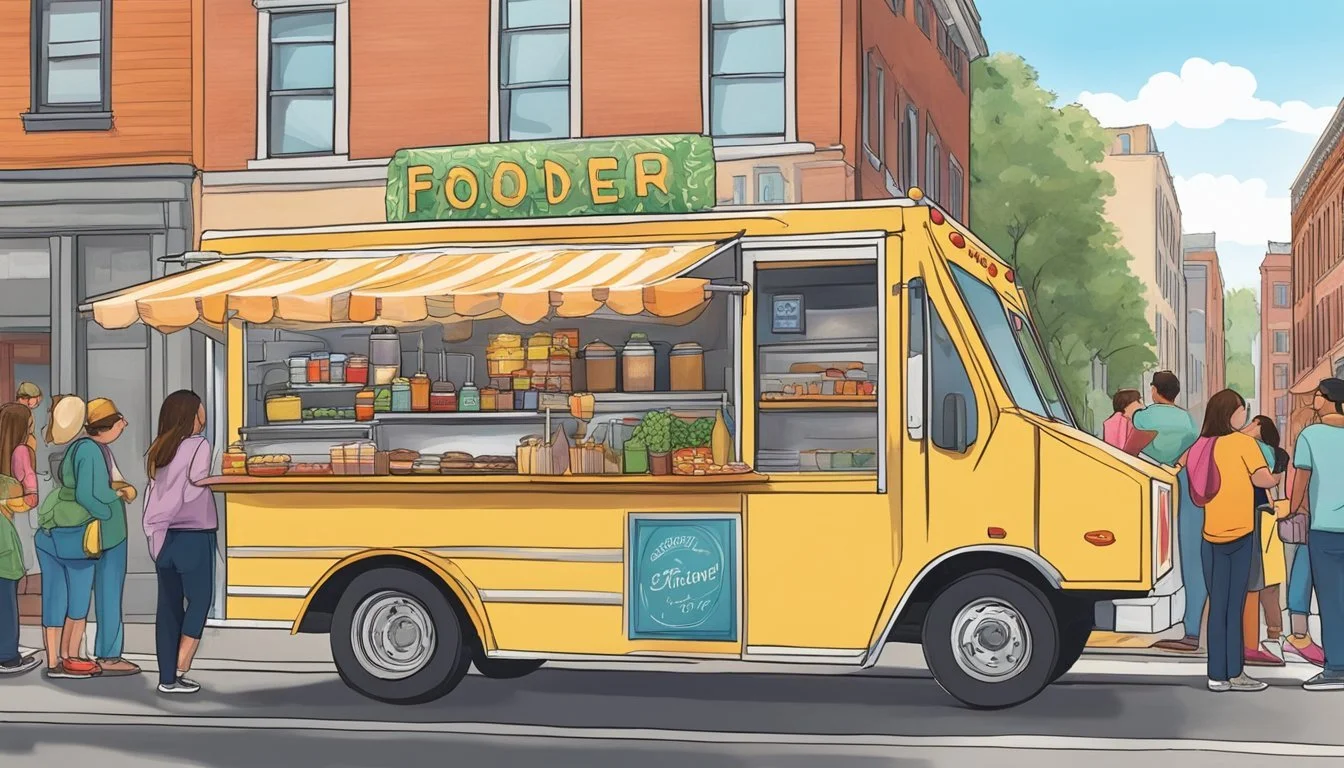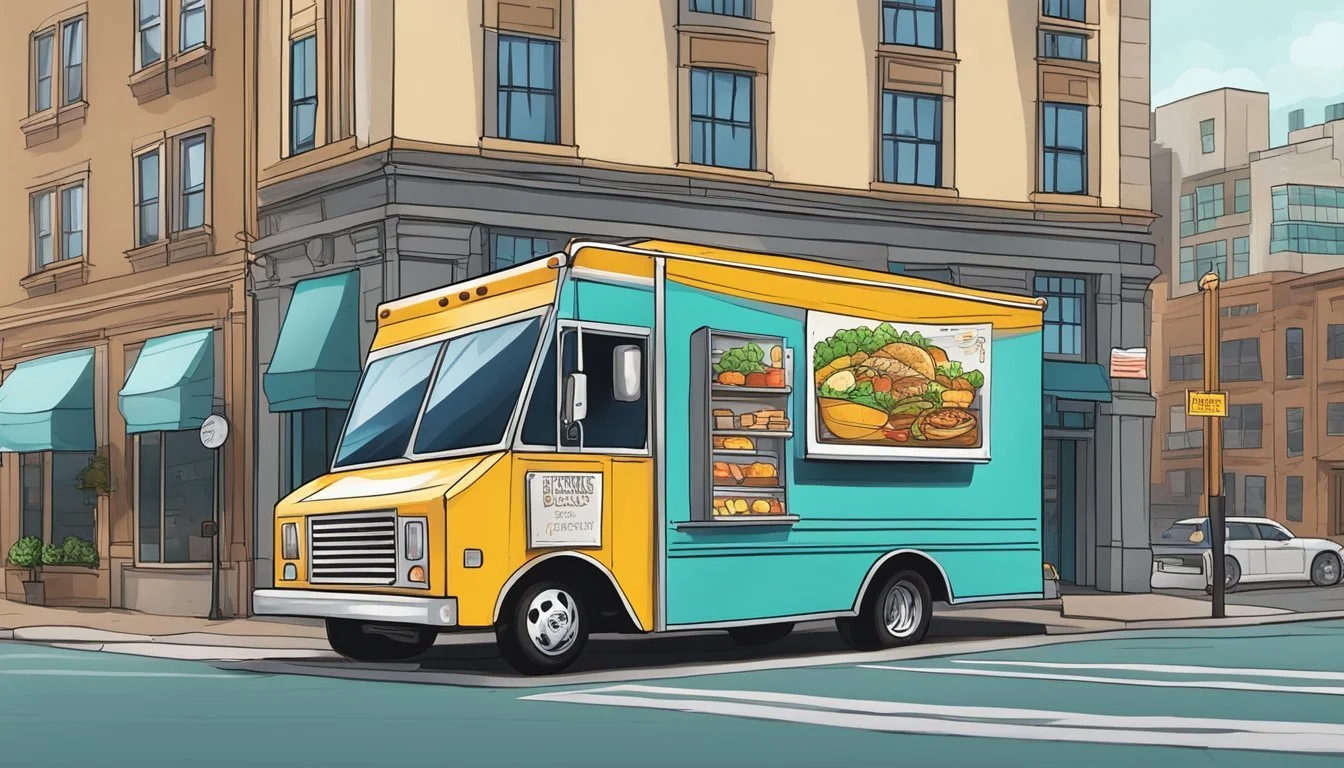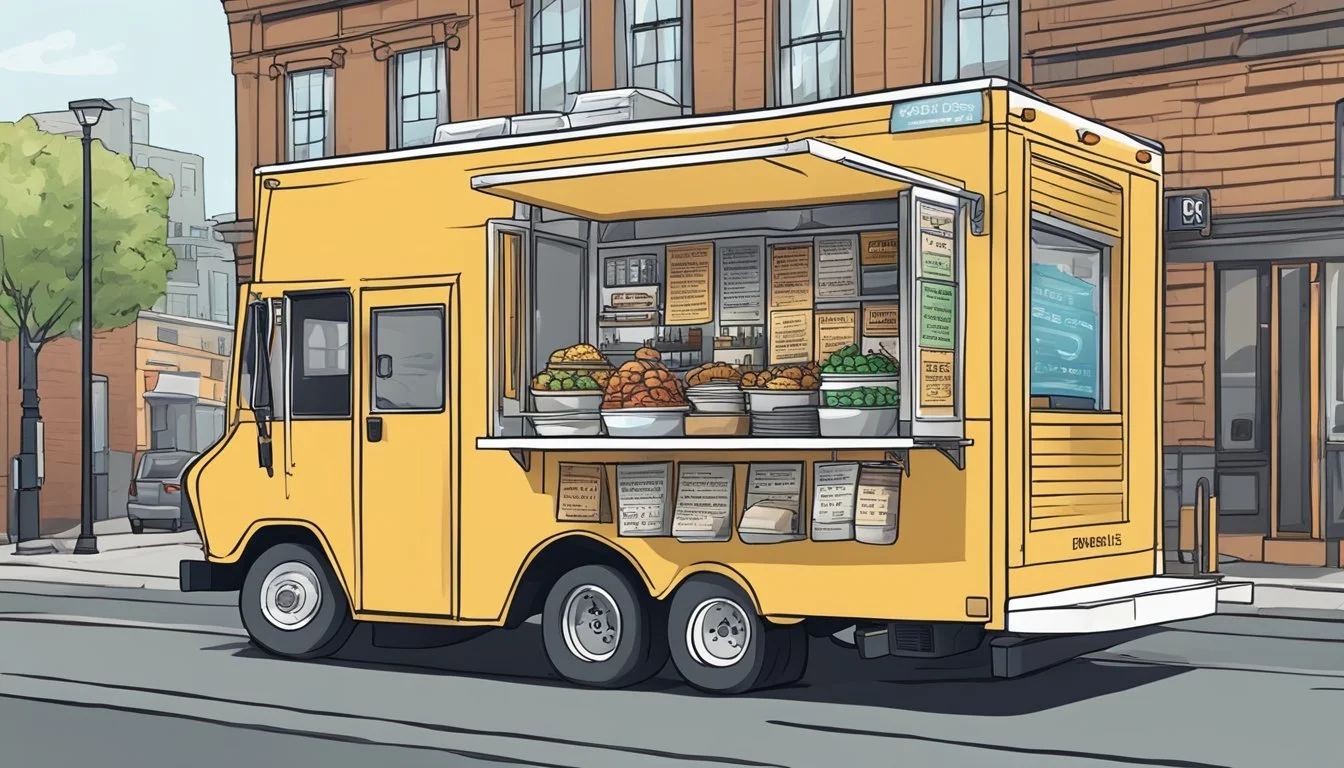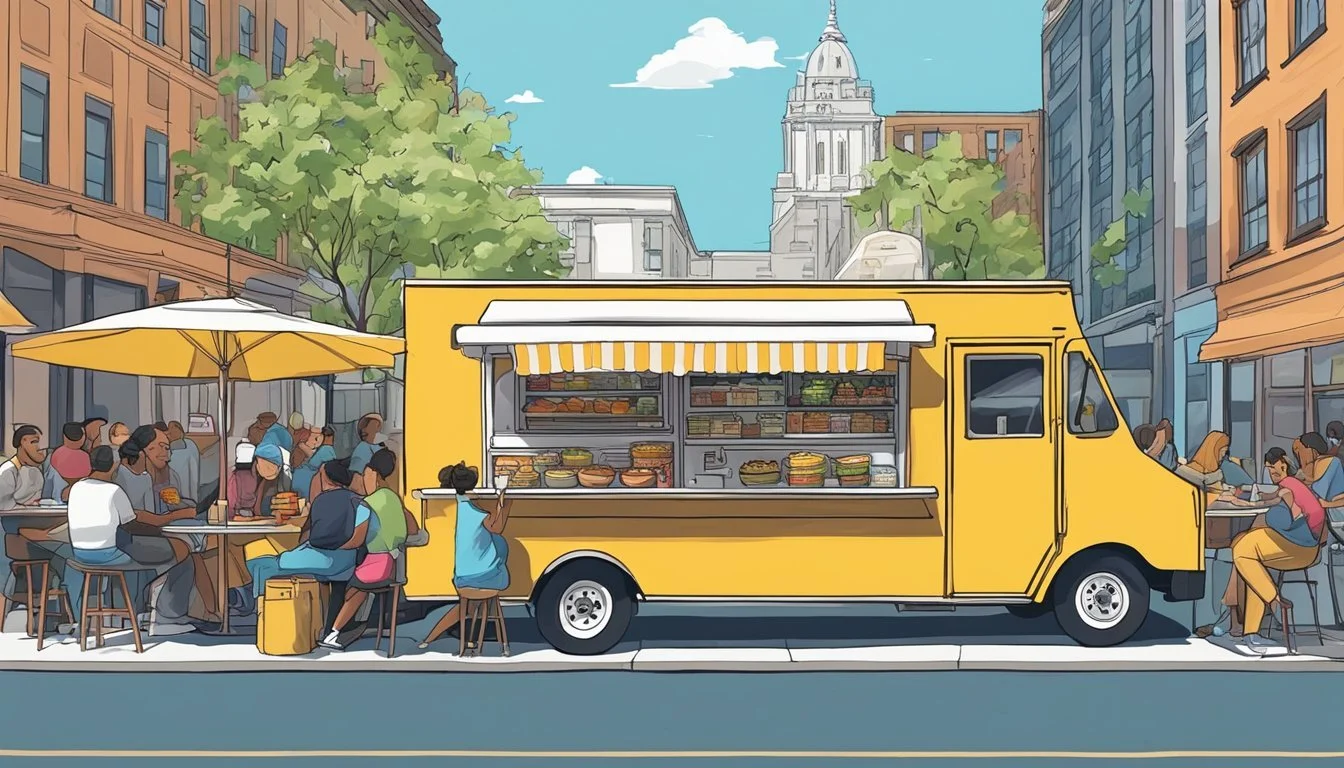Food Truck Laws Providence, Rhode Island
Navigating Regulations for Mobile Vendors
Operating a food truck in Providence, Rhode Island, involves navigating a specific set of regulations designed to ensure the safety and standardization of mobile food establishments. These laws are primarily concerned with public health and safety, integrating state mandates with municipal codes to create a cohesive regulatory environment. It is essential for food truck operators to acquire the correct permits and adhere to the guidelines that govern where and how they can run their businesses.
Providence mandates that all mobile food establishments, including food trucks, obtain a Mobile Food Service license from the Rhode Island Department of Health before hitting the streets. This necessitates compliance with food safety requirements set forth by the state. Additionally, the city of Providence asserts its authority to regulate various aspects of food truck operations, as detailed by Providence's own permitting rules. These rules encompass a range of operational considerations, from parking restrictions to fire safety requirements.
Furthermore, the sale of alcoholic beverages by food trucks in Rhode Island is subject to scrutiny, with specific prohibitions in place as part of the state regulations. The city's regulations also address the logistics of food truck locations during events, ensuring that emergency services can access any area where food trucks are assembled. Entrepreneurs looking to establish a food truck business in Providence, RI, should be well-informed about these local and state laws to ensure successful and lawful operation.
Starting a Food Truck Business
To successfully launch a food truck enterprise in Providence, Rhode Island, entrepreneurs must navigate various legal requirements. From choosing a business structure and registering with the state, to acquiring proper permits, each step is pivotal for compliance and smooth operations.
Business Structure and Registration
An entrepreneur must decide on a business structure such as a sole proprietorship, partnership, or corporation, each with distinct legal and financial implications. Registering the business with the Rhode Island Secretary of State is the first formal step, creating a legal entity recognized by the state. Businesses must ensure their chosen name is available and conforms to state requirements.
State Registration and EIN Acquisition
Upon business structure determination, obtaining a Federal Employer Identification Number (EIN) from the IRS is critical for tax purposes. It serves as a business's social security number. The State of Rhode Island and municipal offices, including the General Treasurer, require the EIN for the state registration and tax setup.
Application for Mobile Food Establishments (MFE)
Before a mobile food business can operate, obtaining state MFE registration is compulsory. Applications are processed by the Rhode Island Department of Health with a stipulation for food safety requirements. Providence municipality may demand additional permits specific to food trucks operating within city jurisdictions. For local regulations, prospective food truck owners should refer to the City of Providence's guide on food establishment permitting. It is essential for food truck businesses to familiarize themselves with and adhere to these protocols to ensure compliance and avoid potential legal complications.
Licensing and Permits
In Providence, Rhode Island, operating a food truck requires navigating through a layered process of licensing and permit acquisition. Food truck operators need to be aware of both state-level mandates and local Providence regulations to legally serve their mobile cuisine.
Food Truck Permit Applications
Operators must start by obtaining a State MFE Registration before they can apply for local permits. The application process involves several documents, such as proof of vehicle insurance, a food safety plan, and employee health awareness training. Once an operator secures a state registration, they can proceed to seek a Providence MFE Permit.
State-Level Permits and Regulations
The Rhode Island Department of Business Regulation oversees the issuance of state-level permits for food trucks, referred to as Mobile Food Establishments (MFEs). These state regulations stipulate that all food trucks need to adhere to R.I. Gen. Laws to maintain operational standards. Permit holders should be prepared for inspections and compliance checks by state authorities.
Local Providence Regulations
On a municipal level, the City of Providence mandates additional local ordinances that food truck operators must follow. These may include zoning restrictions, fire safety compliance, and local health department requirements. The expiration date of a Providence MFE Permit aligns with the state MFE Registration, underscoring the need for timely renewals according to Providence regulations.
Health and Safety Compliance
In Providence, Rhode Island, food trucks must adhere to stringent health and safety guidelines to ensure public well-being. The regulations are enforced through regular inspections and mandated food safety training.
Inspection Requirements for Food Trucks
The Rhode Island Department of Health (RIDOH) mandates that all food trucks undergo a comprehensive inspection before commencing operation. These inspections assess several critical areas, including appliance functionality, general cleanliness, and proper food handling techniques. Operators must obtain a Mobile Food Service License as a prerequisite, which aligns with the Center for Food Protection's aim to uphold public health standards. It's essential for food truck owners to have all the necessary documentation and be ready for periodic inspections to stay in compliance.
Food Safety Training and Regulations
Food safety is paramount, and the RIDOH enforces specific food safety requirements. Food truck operators are required to complete food safety training that meets the guidelines established by the Center for Food Protection. This training involves learning about the proper temperatures for storing and cooking food, cross-contamination prevention, and hygiene standards. The comprehensive regulations ensure that staff handling food are well-informed and equipped to maintain the highest level of food safety. Compliance with these regulations is non-negotiable, and those found in violation may face substantial penalties.
Operational Considerations
When operating a food truck in Providence, Rhode Island, owners must navigate various regulatory requirements to maintain compliance. These considerations include securing the proper insurance coverage, adhering to vehicle specifications, and following strict food preparation laws.
Insurance Coverage
Any food truck operating within Providence needs to have comprehensive insurance coverage. This includes, but is not limited to, general liability insurance, which should carry a certificate of insurance (COI) to prove coverage. Additionally, specific policies might be necessary to cover property, vehicle, and worker's compensation.
General Liability: Protects against third-party injuries and property damage claims.
Vehicle Insurance: Covers the food truck in case of an accident or vehicular damage.
Property Insurance: Protects equipment and inventory inside the food truck.
Worker’s Compensation: Required if the food truck employs staff.
Food Truck Vehicle Specifications
Providence has explicit regulations for food truck vehicles to ensure the safety and standardization across all mobile food establishments. These rules dictate the size and build of the truck, fire safety equipment, sanitation facilities, and the waste disposal system.
Size and Structure: Must comply with the city's zoning requirements.
Fire Safety: Must have a fire extinguisher and meet fire codes.
Sanitation: Must have a hand-washing station and proper facilities for cleaning utensils.
Waste Disposal: Must have mechanisms in place for the disposal of greywater and solid waste.
Menu and Food Preparation Laws
The menu and food preparation of each food truck are subject to the Rhode Island Department of Health's regulations. Food trucks should carefully construct their menu to ensure all items can be safely stored, handled, cooked, and served in compliance with the state's food safety guidelines.
Safe Food Handling: Food must be stored at proper temperatures and handled with appropriate utensils.
Cooking Regulations: Cooking equipment should meet specific safety standards and be regularly inspected.
By adhering to these operational considerations, food truck operators can ensure they are following legal mandates and providing a safe, enjoyable dining experience for their customers.
Financial Responsibilities
When operating a food truck in Providence, Rhode Island, vendors must be cognizant of specific financial obligations. These include various fees associated with permits and registrations, applicable sales taxes, and the necessity of renewing licenses in a timely manner to sustain legal operations within the city and state.
Fees, Taxes, and Renewals
Fees: Running a mobile food establishment (MFE) in Providence requires paying multiple fees. Initially, food truck operators must pay for a mobile food service license from the Rhode Island Department of Health. Additionally, there may be costs for a fire safety permit, motor vehicle registration, and insurance. If a food truck owner is a new applicant, an in-person state background check fee from the Rhode Island Attorney General’s Office is also required.
Mobile Food Service License Fee
Fire Safety Permit Fee (if applicable)
Motor Vehicle Registration Fee (if applicable)
Insurance (cost varies by policy)
Background Check Fee (new applicants)
Sales Tax: Food truck vendors are responsible for collecting and remitting sales tax on all food sales in Providence. Compliance with state tax regulations is critical and requires diligent accounting and reporting.
Renewals: The food truck's MFE registration must be renewed annually by August 1 to maintain legal operation in Rhode Island. Failure to renew on time can result in a lapse of operation and potential fines. It is advised that food truck operators mark this date clearly and plan for renewal well in advance to avoid any disruption in business.
MFE Registration Renewal Deadline: August 1 (annually)
Renewal Fees (must be budgeted for annual payment)
Each entity plays a critical role in the financial planning and sustainability of a food truck business. Owners should keep detailed records and allocate funds accordingly to cover these expenses throughout the year.
Safety and Fire Regulations
Food trucks in Providence, Rhode Island, must adhere strictly to safety and fire regulations to ensure the well-being of patrons and staff. These regulations are enforced to minimize risks associated with mobile food establishments.
Compliance with the Fire Code
Food trucks are required to comply fully with the Rhode Island Fire Safety Code, which mandates clear access for fire trucks and emergency services. The state fire marshal oversees the enforcement of these regulations, ensuring that food trucks operate within the legal safety parameters.
Handling of Propane and Fire Safety
The handling and storage of propane, an essential fuel for many food trucks, are subject to stringent fire safety requirements. Proper installation and maintenance of propane tanks are crucial, and staff must be trained in safe handling procedures to prevent potential hazards.
Coordination with Local Fire Department
Regular coordination with the local fire department is imperative for food truck operators. This ensures that fire safety practices are up-to-date and compliant with current protocols. Conducting drills and having emergency procedures in place are vital steps in fostering a safe food service environment.
Special Circumstances and Additional Permits
Operating a food truck in Providence, Rhode Island, may require obtaining specific permits under certain circumstances. Notably, those who intend to serve alcoholic beverages or participate in special events will navigate unique regulations and application processes to comply with local laws.
Alcoholic Beverages Permit
For food trucks wishing to offer alcoholic beverages, it's mandatory to secure an additional permit. This involves meeting the requirements set forth by Regulation 230-RICR-30-35-1, ensuring that all service of alcohol is in strict adherence with Rhode Island's state laws. The permit process requires proof of responsible beverage service training, and vendors must only serve intoxicating liquors to patrons over the age of 21.
Special Event Permitting
Food trucks operating during special events may need to obtain a special event permit. This is separate from their regular operations license and is required for each event. Events are subject to individual municipal rules, and the organizer must ensure adequate space for emergency vehicle access, including fire trucks and rescues, following the Rhode Island Fire Safety Code. Obtaining this permit ensures that all food truck vendors are recognized by the local authorities and are in compliance with specific event guidelines.
Website and Online Resources
Navigating the regulations for mobile food establishments in Providence, Rhode Island, is made accessible by a variety of online resources. For individuals looking to start a food truck business, the Department of Business Regulation (DBR) provides comprehensive guidelines on their website, detailing the necessary steps for getting started.
List of Essential Resources:
DBR Commercial Licensing: This page Mobile Food Establishments (Food Trucks) serves as a starting point for understanding Rhode Island's regulations, including the prohibition of alcohol sales.
Frequently Asked Questions: The FAQ section addresses common queries and clarifies requirements for registration renewal, among other topics.
Permitting Process Guide: For an overview of the Providence-specific permitting process, interested parties can refer to the City of Providence Mobile Food Establishment Permitting guide, which includes information on health licenses and fire safety permits.
State Regulations: The official State Registration of Mobile Food Establishments page lists the particular documentation and approvals required for operating in Rhode Island.
These resources serve as the regulatory foundation for any mobile food service operation and are essential for compliance. They reflect the state of Rhode Island's agency mission to ensure public health and safety. Food truck operators also need to be cognizant of the need for registrations and permits renewal to maintain their legal operating status.
Waste Disposal and Environmental Concerns
Food trucks operating in Providence, Rhode Island, have to adhere to specific waste disposal regulations to stay compliant with state and local environmental policies. The Rhode Island Department of Environmental Management oversees the implementation of these regulations to ensure waste from food trucks is managed efficiently and sustainably.
Solid Waste: Food trucks must dispose of their solid waste at designated facilities and are prohibited from unauthorized dumping.
Recycling: Recyclable materials such as plastics, glass, and cardboard must be separated from general waste and disposed of accordingly.
Organic Waste: There are regulations on composting which specify that food scraps should be separated and handled at authorized organic waste recycling facilities.
Environmental Protection efforts in Rhode Island also include specific rules for food trucks concerning the recycling of food waste. This is part of the state's food waste ban, which aims to reduce the amount of waste sent to landfills and to foster a greener economy.
All mobile food establishments must also consider the environment when disposing of cooking oil and grease, which can have significant environmental impacts if not disposed of properly. These businesses are urged to use certified grease haulers or recycling services.
The sale and service of alcoholic beverages by food trucks comes with additional concerns related to waste, such as the disposal of bottles and cans, which must also follow state guidelines to ensure proper recycling and waste handling.
By following these established guidelines, food trucks contribute to the protection of Rhode Island's natural resources and the well-being of its residents. Compliance reinforces a food truck's commitment to environmental stewardship and community responsibility.







